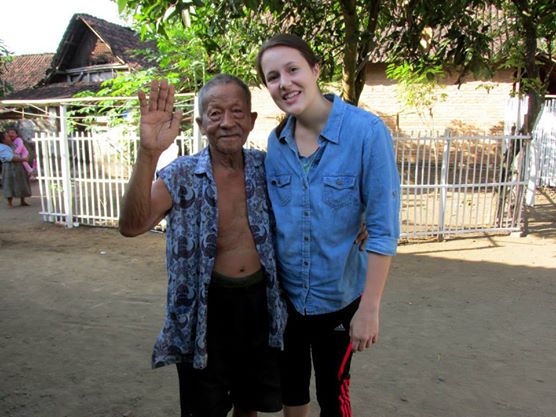One of the joys of learning to use a new language while being immersed among the people who speak it, is discovering that everything you thought you knew was wrong.
But seriously, I love that moment when I finally “get it,” and figure out what people are actually trying to say to me – even if it means admitting that I was so far off.
Here are three examples of things Indonesians say that I completely misunderstood, but now love.
1. Malam Minggu
This first one seemed deceptively simple. An exact translation would be “night Sunday,” and knowing what I know about Indonesian, I would flip those to come out with “Sunday night.” As in, “I will pick you up on Sunday night.” Pretty clear, right? Ha! Not so fast!
Indonesians, at least the ones I know, use a phrase like this to say what we would call “the night before Sunday.” So when you say “night Sunday,” you are actually saying, “Saturday night.”
Now I only need to figure out if when I am told “malam minggu,” people are adjusting for my Americanness and telling me “Sunday night,” or staying true to their language roots and saying “Saturday night.” The mystery lives on.
2. Insha’Allah
Ok, so this isn’t strictly Indonesian, but rather has been adopted from Arabic. Essentially it means, “God willing.” Now, when I think about this phrase in English, I imagine an old black and white film from the Dust Bowl Era and a haggard farmer looking up to the heavens – parched, cracked farm land stretching out behind him – saying, “One day the rain will come, God willing.” In short, it’s serious, dramatic, and maybe accompanied by some minor chords.
In Indonesia, however, I hear it all the time.
“When will the students take their exams?” “Next Friday, Insha’Allah.”
“What time will you pick me up?” “At seven, Insha’Allah.”
“Your homework is due on Monday, okay?” “Insha’Allah.”
When I first got here I thought that every time someone said, “Insha’Allah,” it meant they weren’t sure. I was always a little tempted to ask, “When exactly will we know if Allah is willing? I’ve got a calendar to keep…”
Turns out, “Insha’Allah” is more a term of acknowledgement and respect for Allah/God. It doesn’t mean that the date, time, or event hasn’t been decided, it just means that the unexpected could always happen. It’s like saying, “Students, pending the apocalypse, you have a test next week. I’d start studying if I were you.”
3. Makan
I saved the best for last – this word really shows how understanding language without understanding the culture behind it can be a risky business.
“Makan” means “eat.” Nothing too complicated there.
The Javanese are incredibly hospitable. There is a saying here that a host would rather starve than let a guest go hungry. I have been on the receiving end of this hospitality many, many times. I love Indonesian food, and I love when people give me food. But sometimes I’m just plain stuffed. So I’ve become very used to politely refusing food over and over again.
Sometimes you can only say “No thank you,” and “I’ve already eaten,” so many times before you start to feel a little annoyed. That is why I couldn’t quite figure out why people would tell me “Makan!” even when they had just seen me eat. I know I’m tall, but space is limited, people!
On my best days I would smile, nod, and move on, but on my worst I would sometimes let out an impatient, “Sudah.” Basically like saying, “I already ate, duh.” Rude, I know.
But that all changed when my host father was sitting down to eat one day and asked what Americans say before eating. The truth is, we don’t really have our own polite phrase and usually opt for something foreign like “Bon Apetit.” (Although I’m kind of partial to the all-American “Dig in.”) He went on to explain that in Javanese culture, if you are about to eat, it is polite to offer food to the others around you. If you just plop down and start plowing into that plate of rice without inviting others to join you, that would be considered quite rude…oops.
So all those times I had clearly just eaten and someone else was sitting down to eat and told me “Makan!” they were just being polite. They did not expect me to eat a second lunch (most of the time). And every time I said, “Sudah,” I was totally focused on the fact that I had already eaten, instead of wishing them well on their own gastronomical adventure.
Gotta love language, right?
So, my fellow language learners, what have been your “aha!” moments? Leave a comment below if you’d like to share!

I can relate to your no.1 because when I was in Norway, as in various other European countries, when they say ‘half twelve’ they mean ‘half before twelve’ not ‘half past twelve’ which caught me out more than once. I tried to go digital as much as possible and say 12.30 or 11.30 to avoid the issue!
That is a great example! Thanks for sharing – it’s such a good reminder that sometimes we have to be extra clear and ask lots of questions 🙂
Hi Kelly – great post! We featured it this week in our round up of the best PCV blogs. You can find it at http://bit.ly/19LsPJC 🙂
Thanks!